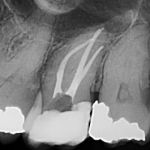How to Deal with a Toothache During Pregnancy
- Understanding Toothaches During Pregnancy
- Common Causes of Toothaches in Pregnancy
- Safe Treatment Options for Toothaches During Pregnancy
- Natural Remedies for Toothaches During Pregnancy
- How to Avoid Toothaches During Pregnancy
- When to See a Dentist During Pregnancy
Understanding Toothaches During Pregnancy
During pregnancy, a variety of changes occur in your body, and these can affect your oral health. Toothaches are not uncommon for pregnant women, and while they may seem like a simple inconvenience, they can be a sign of underlying issues that need attention. A toothache during pregnancy is typically caused by a combination of hormonal changes, changes in oral care habits, and possibly pre-existing dental issues that are worsened by pregnancy.
During my own pregnancy, I experienced tooth sensitivity and mild discomfort in my back molars. I was initially worried, but I soon realized that many of the changes happening in my body could contribute to these issues. Hormones like progesterone can cause the gums to become inflamed, leading to an increased risk of dental problems like tooth decay or gingivitis. It’s important to be proactive and understand how to manage these issues effectively without harming the pregnancy.
Common Causes of Toothaches in Pregnancy
Several factors can contribute to toothaches during pregnancy. Understanding the root causes is key to addressing the pain and preventing further issues. Here are some of the most common reasons pregnant women experience toothaches:
1. Hormonal Changes
During pregnancy, increased levels of hormones such as progesterone and estrogen can affect the gums, making them more prone to inflammation and infection. This can lead to conditions such as pregnancy gingivitis, which can cause discomfort and bleeding gums. I experienced some mild swelling and redness in my gums, which led to sensitivity in my teeth, especially when eating certain foods.
2. Changes in Oral Hygiene Habits
Pregnancy often comes with changes in daily routines, and many women find it harder to maintain consistent oral hygiene due to nausea, fatigue, or other discomforts. This can lead to a buildup of plaque and bacteria, resulting in tooth decay or gum disease. For me, the first trimester was particularly challenging, as morning sickness made brushing my teeth a daunting task, leading to an increase in dental sensitivity.
3. Pre-existing Dental Issues
If you had dental problems before pregnancy, these issues may become aggravated. For instance, cavities, cracked teeth, or other dental issues might cause more noticeable discomfort when pregnant. I had an old filling that began to bother me more frequently during my pregnancy. Regular visits to the dentist before getting pregnant can help identify any dental issues that might worsen during pregnancy.
Safe Treatment Options for Toothaches During Pregnancy
If you're experiencing a toothache during pregnancy, it’s essential to seek treatment that won’t harm your baby. Fortunately, there are several safe options for managing tooth pain while pregnant:
1. Over-the-Counter Pain Relief
During pregnancy, some over-the-counter pain relievers are considered safe to use. Acetaminophen (Tylenol) is generally safe for pregnant women, but you should always check with your healthcare provider before taking any medication. I relied on acetaminophen for short-term relief of my toothache and found it effective in managing the discomfort.
2. Salt Water Rinse
Gargling with warm salt water can help soothe a toothache and reduce inflammation. This natural remedy is gentle and effective in alleviating the pain. I found that rinsing my mouth with salt water after meals helped to calm my gums and reduce sensitivity in my teeth.
3. Cold Compress
Applying a cold compress to the outside of your cheek can help numb the pain and reduce swelling. I often used a cold pack wrapped in a towel, which helped reduce the discomfort around my molars. Just be sure to avoid placing ice directly on your skin to prevent frostbite.
Natural Remedies for Toothaches During Pregnancy
In addition to over-the-counter options, there are several natural remedies that can help relieve toothache pain without the need for medication. Here are some I found helpful during my pregnancy:
1. Clove Oil
Clove oil is a time-tested remedy for tooth pain. It contains eugenol, a natural anesthetic, which helps numb the affected area. I applied a small amount of clove oil to a cotton ball and gently pressed it against the painful tooth. This helped soothe the pain without the need for harsh chemicals or medications.
2. Aloe Vera
Aloe vera is known for its soothing and healing properties, and it can be effective for reducing gum inflammation. I applied aloe vera gel to my gums to reduce swelling and irritation. It’s a natural option that’s both gentle and safe for pregnancy.
3. Guava Leaves
Guava leaves have anti-inflammatory properties and can help reduce gum pain. I chewed on fresh guava leaves when I had a toothache, and the natural antioxidants helped ease the discomfort and promote healing in my gums.
How to Avoid Toothaches During Pregnancy
While it’s not always possible to prevent a toothache, there are steps you can take to reduce the risk of developing one during pregnancy. Here are some preventative measures:
1. Maintain a Healthy Oral Hygiene Routine
Brushing and flossing regularly are essential for preventing toothaches. During my pregnancy, I made sure to brush my teeth at least twice a day with a soft-bristled toothbrush and floss daily. This helped remove plaque buildup and keep my gums healthy.
2. Avoid Sugary Foods
Consuming too many sugary foods can contribute to tooth decay, especially when pregnancy cravings make you want to indulge. I made an effort to limit sugary snacks and beverages and focused on eating more fruits and vegetables to keep my teeth and gums healthy.
3. Drink Plenty of Water
Drinking plenty of water throughout the day helps rinse away food particles and bacteria, reducing the risk of developing toothaches. I made it a habit to keep a water bottle nearby and sip on it throughout the day, which also helped with the dry mouth that can occur during pregnancy.
When to See a Dentist During Pregnancy
If you experience persistent tooth pain or if you notice signs of infection, it’s important to see a dentist. Don’t ignore the pain, as untreated dental issues can lead to more serious complications. I visited my dentist during pregnancy, and they were able to safely treat my toothache without compromising my health or the health of my baby.
At Dentistry Toothtruth, we offer expert dental care for pregnant women. For more information on how to safely address dental issues during pregnancy, visit Dentistry Toothtruth today.







 Aspen Dental - Plymouth, MA4.0 (306 review)
Aspen Dental - Plymouth, MA4.0 (306 review) North Penn Endodontics Group4.0 (87 review)
North Penn Endodontics Group4.0 (87 review) Dental Bright advanced family dentistry & orthodontics4.0 (69 review)
Dental Bright advanced family dentistry & orthodontics4.0 (69 review) aspen dental, Kevin D. Oh, LLC2.0 (8 review)
aspen dental, Kevin D. Oh, LLC2.0 (8 review) Grady Dental Care5.0 (281 review)
Grady Dental Care5.0 (281 review) Aspen Dental - Glendale, AZ4.0 (602 review)
Aspen Dental - Glendale, AZ4.0 (602 review) The Importance of Oral Health Education During Pregnancy for a Healthy Pregnancy
The Importance of Oral Health Education During Pregnancy for a Healthy Pregnancy Best Tips for Brushing Your Teeth Properly for Healthy Gums: Essential Techniques for Oral Health
Best Tips for Brushing Your Teeth Properly for Healthy Gums: Essential Techniques for Oral Health Why Skipping Dental Checkups Can Lead to Bigger Oral Health Problems
Why Skipping Dental Checkups Can Lead to Bigger Oral Health Problems Advantages of Porcelain Dental Restorations
Advantages of Porcelain Dental Restorations How Can Diabetes Cause Tooth and Gum Problems? Preventing and Managing Oral Health Issues
How Can Diabetes Cause Tooth and Gum Problems? Preventing and Managing Oral Health Issues Healthy Habits for Promoting Good Oral Health and Hygiene: Tips for a Healthy Smile
Healthy Habits for Promoting Good Oral Health and Hygiene: Tips for a Healthy Smile